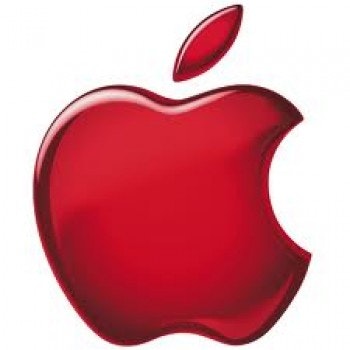In the last couple of years, the smartphone industry has changed its dynamics so fast that a number of major players almost became irrelevant. Nokia Corporation (ADR) (NYSE:NOK) and Research In Motion Ltd (NASDAQ:BBRY) are both trying to reenter the smartphone market with more capable hardware and far more appealing operating systems. Nokia has partnered with Microsoft Corporation (NASDAQ:MSFT) to launch the amazing Lumia series of phones, and Blackberry has overhauled its outdated OS and launched the BB10. The initial response to both efforts has been good, but the market is still waiting for solid sales data before it considers these efforts successes. These two companies face competition from Apple Inc. (NASDAQ:AAPL), as well as Google Inc (NASDAQ:GOOG)’s Android. Android is the largest OS in the world, and is also the fasting growing smartphone operating system. The only way BlackBerry and Nokia can turnaround is if they can find cracks in the Android’s dominance.
Android
Apple Inc. (NASDAQ:AAPL)’s iOS is restricted to only Apple Inc. (NASDAQ:AAPL) hardware, but Google Inc (NASDAQ:GOOG) freely lends its Android to manufacturers. This has allowed the small unknown smartphone brands of yesterday to develop and build a huge brand following based on the Android ecosystem and software. The fan base of Apple Inc. (NASDAQ:AAPL) is pretty strong, and it is difficult to turn an Apple Inc. (NASDAQ:AAPL) user onto a new brand. Therefore, the comeback efforts of Nokia and BlackBerry primarily hinge on the willingness of consumers to give up on Android.
Chinse growth
China is an economic superpower and has one of the most lucrative consumer markets in the world. Due to its large population and low technology dispersion, China remains one of the biggest targets for smartphone growth. According to reports, the Chinese smartphone industry might become double the U.S. industry’s size in only a couple of years’ time. The total number of smartphones in China could reach a mammoth 500 million by the year’s end. These statistics make China the biggest and the most attractive smartphone market in the world.
The Chinese market can be classified as a value smartphone market. There is a growing demand for high-end devices, but there is still a higher growth rate in value devices. This is the very reason that Apple Inc. (NASDAQ:AAPL) has not been able to dominate the Chinese market. The Apple Inc. (NASDAQ:AAPL) model of selling iPhones relies heavily on subsidies from carriers, and this lack of carrier support has been a primary reason behind Apple Inc. (NASDAQ:AAPL)’s slow growth rate in China. Where the iPhone has suffered, much cheaper Android devices have taken off: the Android growth rate in China is almost twice the global Android growth.
A Chinese ban?
Google Inc (NASDAQ:GOOG)’s Android is the leading smartphone operating system in China. It seems that the Chinese government has taken notice of the increasing control of Android over the Chinese smartphone industry. According to a recent paper by the Chinese Ministry of Industry and Information Technology, the entire industry has become too dependent on Android, and indirectly on Google. A recent report in Bloomberg has also raised concerns about the findings of this paper and the impact it can have on the Chinese smartphone market. The paper also said that Google Inc (NASDAQ:GOOG) has discriminated against local companies by creating hindrances in the effective transfer of code. Google Inc (NASDAQ:GOOG) was also criticized for allegedly using commercial agreements to stop local companies from business development of devices.
It is too soon to tell if China will take any action against Android, but the shaky relationship between Google Inc (NASDAQ:GOOG) and China is no secret. The search engine giant has already left this highly lucrative market to the Chinese search giant Baidu.com, Inc. (ADR) (NASDAQ:BIDU). If the Chinese government takes any action against Android, it will transform the entire smartphone industry.
Bottom line
Nokia was China’s top smartphone vendor in 2011, but its market share has slipped drastically. According to recent report, the smartphone market share of Nokia has fallen to a meager 3.7%, as compared to an approximately 17% market share for Samsung. At the beginning of 2012 Blackberry had a 3.5% share in Asia/Pacific which has slipped down further due to the wide popularity of Android.
China might be the deciding growth factor in this highly competitive industry. If any restrictions are placed on Android, the companies that will benefit are Apple Inc. (NASDAQ:AAPL), Nokia Corporation (ADR) (NYSE:NOK), Microsoft, and BlackBerry. Apple might still face some difficulties in gathering a large following in China due to its high price points. Microsoft will be able to find a much higher demand for its newly released Windows Phone 8 software, which is already available on major manufacturers such as HTC, Samsung, and Nokia. Lumia and BB10 models will also find it much easier to find a stronghold against a weakened Android.
The article Which Smartphone Could Rise on this News? originally appeared on Fool.com and is written by Mohsin Saeed.
Copyright © 1995 – 2013 The Motley Fool, LLC. All rights reserved. The Motley Fool has a disclosure policy.






